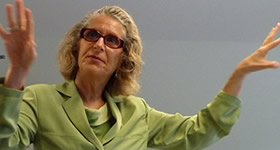Read Colin Powell’s great article in Newsweek, May 21, 2012. Powell talks about good information – distinguishing facts from opinion and speculation; verifying the verified; and more. Of course, Powell is talking about Iraq and the Bush government and the bad decisions – and his own embarrassment at the U.N.
But his thoughts are useful to you and me as we plan our fundraising activities, design our institution’s strategic plan, make important decisions at board meetings.
Powell developed 4 rules for his intelligence staff. I think we can use these 4 intelligent rules for our own work: (1) Tell me what you know. (2) Tell me what you don’t know. (3) Then tell me what you think. (4) Always distinguish which is which. Here is how Powell explains these 4 rules:
“What you know means you are reasonably sure that your facts are corroborated.” In general, you know where the information came from and multiple sources say the same thing. While you cannot be fully assured always, you’re pretty darn sure your analysis is correct. “In every case,” Powell says, “tell me why you are sure and your level of assurance.”
“What you don’t know is just as important. There is nothing worse than a leader believing he has accurate information.” Be honest and forthright. Be overly cautious to explain what you don’t know. Qualify!
“Tell me what you think…. verified facts are the golden nuggets of decision making…[but] unverified information, hunches, and even wild beliefs may sometimes prove to be just as important.” Yes, our own wisdom – yours and mine – our own expertise does allows us to make judgments. But…
“Always distinguish which is which,” says Powell. He wants – indeed any competent leader wants – lots of input. Good decision making combines “corroborated facts, analysis, opinions, hunches, informed instinct. Then we can make good decisions.
So how well does your organization do this? How effectively do your leaders enable this to happen? How well do you perform?
Here’s another question for our organizations: How well do you understand the distinctions between real solid facts, facts that are not solid facts, and then personal opinion? The U.S. lives in a rather fact-free society, I think. And there’s science that proves that! Read “The Science of Why We Don’t Believe Science,” Chris Mooney, Mother Jones, May/June 2011.
Here’s a bit more from Colin Powell:
— “You can’t make good decisions unless you have good information and can separate facts from opinion and speculation. Facts are verified information, which is then presented as objective reality. The rub here is verified. How do you verify verified? Facts are slippery, and so is verification.”
— To paraphrase Powell: “Facts can change…especially when the verification changes.” My question is, how much do you trust your verifiers and their facts? How assured are you that your verifiers aren’t interpreting facts to suit their own bias, reflect their own politics (and all organizations have politics), pursue their own ends?
— Powell warns us to worry when those verifying the supposed facts use qualifying phrases like: “My best judgment…I think…As best I can tell…Usually reliable sources say…”
I think we have lots of work to do – in our organizations and in our country.

